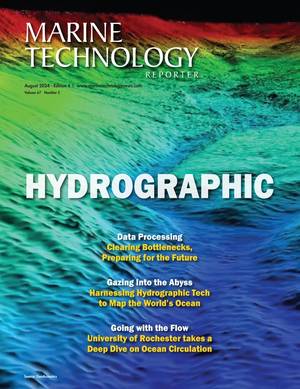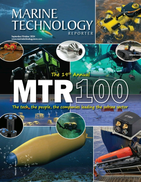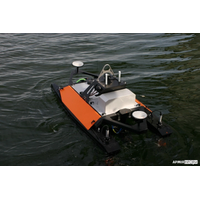
Maritime Robotics and Teledyne Marine Equip Ukrainian Navy with USVs
& Security, at Maritime Robotics. Maritime Robotics developed the Otter USV to support military personnel in mapping and securing marine environments. Controlled and navigated remotely, Maritime Robotics' USVs can identify, locate, and safely neutralize potential threats such as explosive devices and sea mines, according to the company.Credit: ArmyInfor
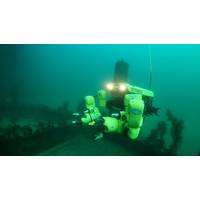
Subsea Minehunter: RE2 nabs $9.5m Development Deal from ONR
robotic system for the autonomous neutralization of underwater mines for the U.S. Navy. The program, called Maritime Mine Neutralization System (M2NS), will use the RE2 Sapien Sea Class system to precisely place and attach neutralization devices to underwater mines and water-borne improvised explosive devices (WBIEDs).RE2 will serve as the systems integrator for this program. In addition to RE2 Sapien Sea Class, the M2NS will use components, including RE2’s advanced computer vision and autonomy software, RE2 Detect and RE2 Intellect, to enable the precise, autonomous, and clandestine neutralization
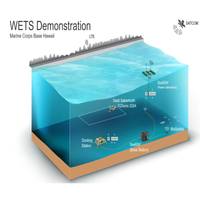
Seabed Power: Waves Used to Power Up Sabertooth Autonomous Vehicle
high-definition sensor data can alert remote operators to possible intruder activity.Operating the Sabertooth will demonstrate that subsea residence enables a sustained presence to secure underwater port infrastructure and its ability to support efforts to protect shipping against underwater explosive devices.For the trials, the Sabertooth will be equipped with an R2Sonic Sonic 2024 multibeam echosounder, 2G Robotics ULS-500 PRO Laser Scanner and camera, and the ASL AZFP 70,120 & 200 kHz Acoustic Zooplankton Fish Profiler.The 3000m rated Saab Seaeye Sabertooth is a roaming and hovering system
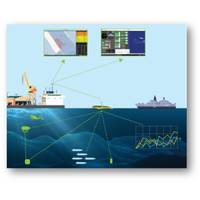
Autonomous ANTX: Seismic Survey Tech and Port Security
, underwater vehicles, where technology is improving and is more easily available to people around the world,” he told the Marine and Autonomous Technology Showcase event in Southampton late last year. “It’s not a giant leap to imagine these vehicles can be repurposed to make explosive devices or be used for other devious ends.” To that end, focus on naval security has increased.Shifting FocusSimilarly, ION has been shifting its focus. While the company’s core business is seismic operations, it’s recently been looking at how its capabilities could be relevant to
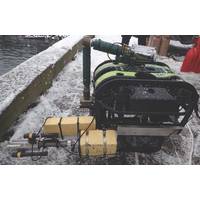
The Blowfish Project: ROV Helps to Secure US Waterways
The research and development arm of the Defense Threat Reduction Agency (DTRA) has invested in a remotely operated underwater vehicle (ROV) system capable of identifying and neutralizing underwater improvised explosive devices (UWIEDs). Code-named the Blowfish Project, this technology is a collaborative effort with the U.S. Naval Surface Warfare Center Indian Head Explosive Ordnance Disposal Technology Division (NSWC IHEODTD) and Naval Information Warfare Center (NIWC) Pacific, utilizing development and testing sites located in California, Maryland, and Virginia.Similar to available technology fielded
IDEX: Demo of Aquabotix SwarmDiver EDGE
capabilities to be used as a visual boundary and first line deterrent for various waterborne threats.The SwarmDiver EDGE system has been designed to alert for threats of manned and unmanned vehicles, including militarized vehicles and hobby drones with explosives, or swimmers planting improvised explosive devices (IEDs) through utilization of a swarm of the vehicles equipped with high intensity lights. This capability can be used to ensure the security of vessels and other targets of interest to opposing forces in ports or through geographical bottlenecks, where there have been reports of numerous
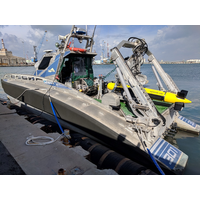
Kraken Completes Sea Tests of KATFISH with Elbit Systems
, today’s diesel-electric submarines are quickly becoming one of the biggest threats to naval operations and the $2 trillion commercial shipping industry.Compounding the threat from stealthy submarines are the hazards posed to worldwide shipping from naval mines and underwater Improvised Explosive Devices (IEDs). A naval mine is a self-contained explosive device placed in water to damage or destroy ships or submarines. Like roadside bombs on land, naval mines are a cheap way to undercut military force projection. Since World War II, mines have sunk or crippled 15 US Navy ships, more than all
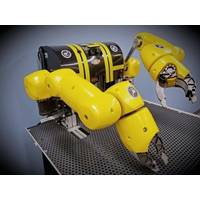
RE2 Robotics is Developing Manipulators for the US Navy
of Naval Research (ONR) to continue development and commercialization of its Dexterous Maritime Manipulation System (DM2S).RE2 Robotics’ DM2S technology will provide Navy Explosive Ordnance Disposal (EOD) personnel with the ability to remotely and effectively address Waterborne Improvised Explosive Devices (WBIEDs).WBIEDs and mines pose a significant threat to vessels, bridges and ports, and when placed in congested areas, such as bridge pilings, they can be particularly difficult to access and defeat. Recognizing the inherent dangers present in the detection and inspection of WBIEDs, there is
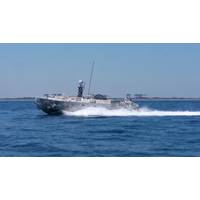
Autonomously Operating Winches for Naval USVs
are designed and engineered for optimal durability and comply with the MIL standard 901D for shock and vibration.Additionally, the winches’ modular and compact design allows for flexible system installation on USVs, which are used to autonomously sweep, localize and neutralize mines and other explosive devices without human interaction. In addition to mine countermeasure application, the USVs may target a wide range of commercial applications, too.The winches are made of aluminum and special alloys, which make them lightweight and corrosion resistant. In terms of pull force/winch weight ratio, this
 August 2024
August 2024
